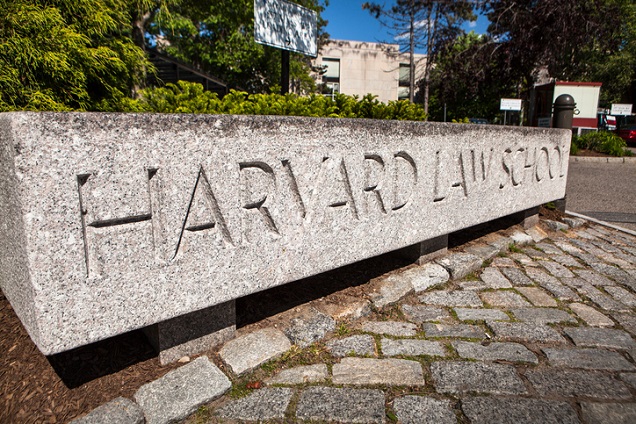Over the past couple weeks, we have seen vigorous legal argumentation in hearings — by Zoom, of course — as to who has the legal right to be a United States citizen. Two cases — that of little Simone Mize-Gregg and Kessem Kiviti — stemmed from the U.S. government’s denial of citizenship to a child born abroad through surrogacy to a married same-sex couple where at least one parent is a United States citizen.
The U.S. government applied the “out of wedlock” section of the immigration code to both families despite their being married, arguing that the regular “wedlock” section requires that the parents of the child not only be married, but also that both parents be biologically related to the child. In response, the parents argue that that interpretation is incorrect, since the language of the statute, you know, doesn’t say that.
Two weeks ago, the United States District Court for the Northern District of Georgia heard argument by the government and the attorneys for two U.S. citizen dads (that’s right, both parents are citizens in this case), Derek Mize and Jonathan Gregg. Mize and Gregg are arguing that their daughter ought to be considered a US citizen. The government contends that, while Mize is a U.S. citizen by birth, he is not a genetic parent to the child and therefore does not pass his citizenship to his daughter. Gregg, on the other hand, is a genetically connected parent to their daughter. However, he is a U.S. citizen through his U.S. citizen mother, but born and raised in England. When looking to the “out of wedlock” section of the immigration code, a U.S. citizen genetic parent must also meet a U.S. residency requirement (which does not appear in the married parent section), to pass citizenship to a child born “out of wedlock.” The government contends that Gregg does not meet the residency requirement and therefore does not pass US citizenship to his daughter.
The attorneys for the family laid out their case that the government was (1) not abiding by the immigration code, and (2) doing it in a way that raised some serious constitutional questions.
Of intense debate was the question of the meaning of the statutory words “born of … parents.” The family’s attorneys argued that a child can be “born of” a married couple without being genetically related to both parents. After all, assisted reproductive technology (ART) with the help of donor eggs, sperm, and embryos, is common and growing. Moreover, traditionally, parents without genetic connections have long been recognized as parents through a marital presumption of parentage. For example, even 50 years ago, if a woman conceived a child genetically related to someone other than her spouse, the spouse was always legally recognized as the parent of the child.
The government’s attorney, however, argued that the plain meaning of “born of” requires that there be both a legal connection between the parents and the child and a genetic connection between both parents and the child.
Separate But Equal?
Last Friday, the District Court for District of Maryland held argument in the Kiviti case. Like in Mize-Gregg, the issue was the citizenship of the Canadian surrogate-born daughter of two dads, Roee and Adiel Kiviti. Different court, different judge. But the case involves similar facts and the same legal team for plaintiffs. While much of the debate was similar to the Mize-Gregg hearing in Georgia, the government attorney attempted to argue that there was little reason to be concerned for the non-U.S. citizen child, since she could just go through the naturalization process. To that, the judge had an interesting retort, “are you saying that [that process] is ‘separate but equal’?” For all of you junior litigators, I’ll tell you that it’s never a good sign if a judge asks you that question!
Citizenship by birth and naturalization are not, in fact, equal. You probably already thought of the first distinction, which is that naturalized citizens can never be president. More likely to be an issue, though, is the long and expensive nature of the naturalization process. Also, the decision to grant an application for naturalization is, at the end of the day, itself discretionary. The government can choose not to grant any application for U.S. citizenship. And then, even if you succeed at naturalization, the U.S. government can de-naturalize a citizen, if it so chooses, under certain circumstances. The government cannot, however, revoke citizenship to those who are entitled to it by birth.
Immigration Equality, a nonprofit with a focus on legal representation and advocacy for LGBTQ+ and HIV-positive community members, has been leading the charge in both of these cases, as well as two others of a similar nature. The most famous of the four cases — partially for the pure outrageousness of the facts — is that of Andrew and Elad Dvash-Banks. In that case, a married gay couple had twin boys with the help of a gestational surrogate in Canada. When the dads went to process the U.S. passports for the twins in order to move to Los Angeles to be closer to family, they found themselves in the bizarre situation where one twin was granted citizenship, while the other twin was denied.
The family prevailed in a case before the 9th Circuit, with the judge ordering that the government issue a U.S. passport for the other twin. However, ever conscious of the consumption of government and judicial resources, the government went ahead and appealed the decisions, and, despite having a lot of new judges in its ranks, the 9th Circuit Court of Appeals has been taking its sweet time getting to the case.
A fourth case, that of a married same-sex female couple, Allison Blixit and Stefania Zaccari, whose second child is being denied U.S. citizenship based on the same “born of” logic of the U.S. government, is in a bit of a transition. The case was moved from the District of Columbia to the District of New Jersey, following the family’s relocation to the Garden State, and is still pending a hearing.
The representation in the hearings for both the Mize-Gregg family and the Kiviti family included, in addition to Immigration Equality, Biglaw powerhouse Morgan Lewis Bockius, and Lambda Legal.
I had a moment to catch up with the Executive Director of Immigration Equality, Aaron Morris, to get his thoughts on the latest judicial movement. Morris noted that it is always hard to “read the tea leaves” from a judge’s questions, no matter how positive a hearing seems in your favor. However, he remained optimistic that justice would, ultimately, prevail.
 Ellen Trachman is the Managing Attorney of Trachman Law Center, LLC, a Denver-based law firm specializing in assisted reproductive technology law, and co-host of the podcast I Want To Put A Baby In You. You can reach her at babies@abovethelaw.com.
Ellen Trachman is the Managing Attorney of Trachman Law Center, LLC, a Denver-based law firm specializing in assisted reproductive technology law, and co-host of the podcast I Want To Put A Baby In You. You can reach her at babies@abovethelaw.com.












 Ellen Trachman is the Managing Attorney of
Ellen Trachman is the Managing Attorney of 
 Jill Switzer has been an active member of the State Bar of California for over 40 years. She remembers practicing law in a kinder, gentler time. She’s had a diverse legal career, including stints as a deputy district attorney, a solo practice, and several senior in-house gigs. She now mediates full-time, which gives her the opportunity to see dinosaurs, millennials, and those in-between interact — it’s not always civil. You can reach her by email at
Jill Switzer has been an active member of the State Bar of California for over 40 years. She remembers practicing law in a kinder, gentler time. She’s had a diverse legal career, including stints as a deputy district attorney, a solo practice, and several senior in-house gigs. She now mediates full-time, which gives her the opportunity to see dinosaurs, millennials, and those in-between interact — it’s not always civil. You can reach her by email at 
 Jordan Rothman is a partner of
Jordan Rothman is a partner of 


 Kathryn Rubino is a Senior Editor at Above the Law, and host of
Kathryn Rubino is a Senior Editor at Above the Law, and host of